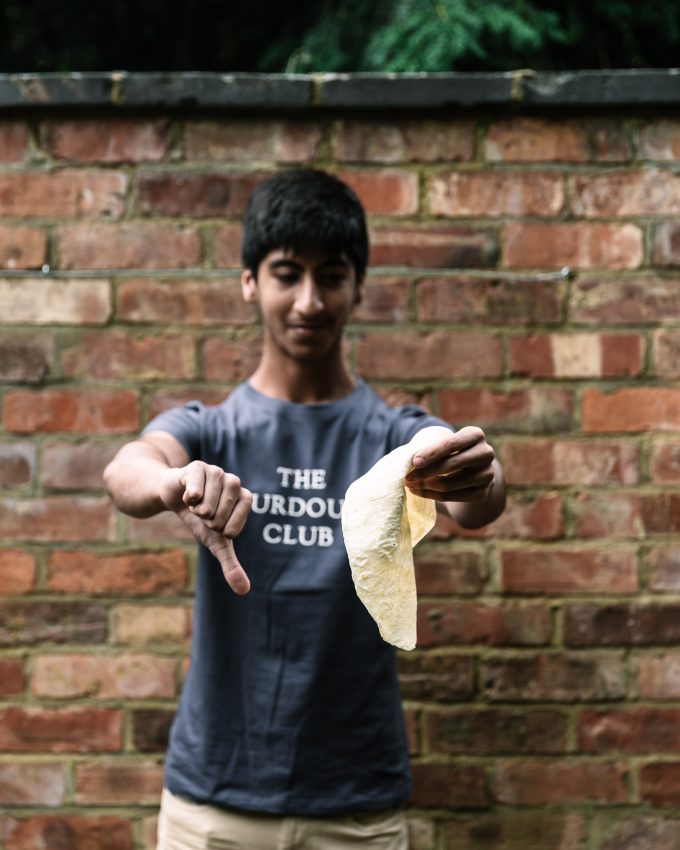
Bread, diabetes and blood sugar balance have been at the front of my agenda for many years. I have written about sourdough and blood sugar balance
Maintaining balanced blood sugar levels and managing bread consumption are essential for overall health. Unfortunately, there’s a lot of misinformation from so-called experts and drama-loving influencers who promote the latest health trends, urging their followers to avoid bread as if it were kryptonite to Superman. They often instill fear about bread causing blood sugar levels to spike dangerously.
While it’s true that white bread, made with refined flour, can raise your blood sugar, knock you out of ketosis (if you are following a ketogenic diet), and should be avoided, not all bread is created equal. Wholegrain, diverse ingredient fermented breads—especially those following the BALM protocol—have a moderate impact on blood sugar levels.
So, why is it so important to pay attention to blood sugar? Because it significantly affects how you feel and your overall health. Proper blood sugar management can enhance your energy levels, mood, and reduce the risk of various health issues.
Should I avoid eating white bread?
We feel feel pretty strongly about white bread here at the Sourdough School because a diet high in refined carbohydrates is comparable to lifetime of smoking. It’s damaging on so many levels. Let’s look first at the way industrially made breads can send blood sugar soaring – and indeed why this is highly dangerous for diabetics, as well as perilous for the rest of us.
It all comes down to carbohydrates. Carbs have a bad name all-round, thanks to simplistic messages from the dieting industry. But we all need carbs to live. Our bodies turn carbs into sugars that flow in our blood to give organs and muscles the vital fuel they need. Our metabolisms constantly try to regulate the amount of glucose-sugar fuel in our blood. Too little means body and brain get fuel-starved and can’t function. Too much, and our organs are poisonously damaged, because excess blood-sugar is a toxin.
Our bodies deal with spikes of excess blood-sugar by mopping them up with insulin (I’m simplifying here). In response to constant bombardment by rapidly-building peaks of sugar from processed foods, our bodies have to keep producing loads of insulin to manage them.
This is an unnatural strain. Eventually the insulin system fails under the load. At this point, people’s bodies can no longer limit organ-damaging sugar peaks. They develop Type 2 diabetes, which puts their brains and other vital organs at serious risk of damage from poisonously uncontrolled blood-glucose.
High blood sugar levels in people with diabetes can, for example, damage blood vessels, increase inflammation, and disrupt the normal blood flow in the heart.This explains why people with Type 2 diabetes are twice as likely to die from cardiovascular disease, such as heart attacks and strokes, the American Heart Association warned this year.
-

White Bread -

is bad for -

everybody
The Trap
What goes up must come down. Processed white bread’s high GI means that our blood-sugar will come crashing down at around three-to-five hours after eating it, says the study. This happens because the body’s hard-pressed insulin response has actually had to over-compensate to cope with all that rush of glucose. That doesn’t only mean that white-bread eaters’ mood and energy slump. The research reports that people with weight problems who send their blood-sugars soaring with such simple carbs subsequently get ravenously hungry when that carb crash inevitably hits. Not only that, but their brain regions related to food intake, reward and craving all show increased activity.
The result? More eating, more carb-crashes… and more weight gain. Being overweight is significantly associated with spiralling risk of developing Type 2 diabetes. Another diabetes risk is chronic body-wide inflammation. This again can be caused by our metabolisms struggling to regulate toxic sugar spikes.
In 2021, a team of Spanish investigators in the journal of Agriculture and Food Chemistry reported another important sourdough benefit for the body. It produces significantly less inflammation in the body than does eating ordinary refined bread. Their lab tests showed that consumption of a variety of sourdough breads not only resulted in improved post-meal blood-sugar and insulin levels compared with ordinary shop-bought bread – they also had lower levels of a blood substance that indicates inflammation in the body, called MCP-1.
Inflammation is known to raise people’s risk of developing Type 2 diabetes. There seem to be a number of reasons for this. But established research says that inflammation activates and increases the expression of several proteins that suppress insulin-signalling systems. This means that the body gets less responsive to the insulin hormone: it becomes insulin resistant. To compensate, the body has to try to pump more insulin to get the same blood-sugar controlling effect. Again, this chronic strain can eventually cause the insulin system to fail.
Being overweight is also a known risk for inflammation. Fat cells can release substances that cause chronic inflammation around the body. But that’s not all. Recent research, for example in the Journal of Clinician Investigation in 2018, shows that insulin resistance can in turn cause fat tissue to become inflamed. So here we have the potential for a debilitating vicious cycle of inflammation to start.
Clearly, we need to do our best with our diets to reduce chronic inflammation (which unfortunately we all tend to develop to some extent as we get older). So that’s another job for sourdough.
Indeed, 2021 research by investigators at America’s Stanford University has shown that the more people eat fermented foods, the better regulated is their immune system and, in turn, the lower their levels are of inflammation. The researchers say this is due to the fact that eating fermented foods foster healthier populations of microbes in our guts.
Type 2 diabetics are also up to four times more likely to develop heart failure and die than adults without diabetes, the AHA warned 2019 in the journal Circulation.
So why do we teach about bread and wellness when bread can be so harmful?
Bread can be both the best of foods and the worst of foods, and by avoiding bread altogether you are missing out on vital goodness such as dietary fibre that can actually help with weight loss, blood sugar management, satiety and wellness. The way we teach you to make bread and how to eat your bread actually helps people with to keep their blood sugar at healthy levels – and also to enjoy a delicious life-enhancing food. That bread is sourdough. ‘Of course, you’d say that Vanessa,’ I hear the processed-food industry chorus. But our work here at the Sourdough School our approach is underpinned by a wealth of evidence; not just from the students here who take great joy in showing me the reading from their blood sugar monitors, but also from a decent and corroborated body of scientific research. Sourdough is in metabolic terms the polar opposite of the “Sliced White death” white bread ( a phrase i was amused to spot on a Sourdough Bakers T Shirt recently.)
Does this blood-sugar problem mean that all carbs are evil? No.
However, it does mean that foods packed with high levels of rapidly digested ‘simple carbs’ (say hello, white bread; say hello, all other ultra-processed Western convenience-foods) can be a proven danger to health. Much better that we feed our bodies with the kind of carbs that our bodies originally evolved to handle. These carbs are naturally complex in structure and release their sugars only slowly in the digestive system.
One such is a carb called resistant starch. Because resistant starch resists being digested (hence its name), your body takes longer to break it down. This keeps your blood sugar more stable over a longer period of time. No spiky sugar rush, no spiky sugar crash. Far better for your body, and far better for your mood and energy levels through the day. This is well established by reputable studies such as this one in 2009, by Italian food scientists at Parma University, in the Journal of Cereal Science, which establishes that sourdough breads contain higher levels of resistant starch compared with breads baked with commercial yeast. Nowadays resistant starch is comparatively rare in the highly-processed modern Western diet. But it is plentiful in sourdough, thanks to process of fermentation that is vital in its baking. What’s more, fermentation produces organic acids that further delay the absorption of starch.
Fermentation is the process by which microorganisms, such as bacteria or yeast, break down a substance and change it into something else. As Dr Jane Shearer, an associate professor in the University of Calgary’s Department of Biochemistry and Molecular Biology explains, ‘In sourdough bread, yeast breaks down carbohydrates and gluten in the flour. It produces different compounds. It alters vitamins. And so we know sourdough bread has a healthier metabolic profile for individuals. Indeed, this explains its superbly low GI rating. A food’s GI (glycemic index) indicates how much our blood-sugar levels rise two hours after eating it (and thus how hard our insulin system has to work). Sourdough bread has a GI rating of 54, which ranks it as healthily low, explains a 2020 study in the journal Aging Clinical and Experimental Research. By contrast, processed white bread has a sky-high GI rating of between 71 and 75.
It’s also about your gut microbiome.
Happy gut bugs are believed to benefit our immune systems in two ways: first they release chemicals that actually help the immune system to work well, which keeps down inflammation. Second, healthy bugs suppress the action of toxic gut bugs that eat at our stomach linings, creating leaky guts that dribble toxins into our bloodstreams, and causing body-wide inflammation.
Again, eating inflammation-fostering foods can have the opposite effect. A study in the journal Frontiers in Endicrinology 2021, found that the more people eat foods that significantly raise bodily inflammation (hello again, processed white bread) the greater their risk of developing Type 2 diabetes.
Just buying sourdough isn’t enough. A 2018 investigation by the consumer group Which? revealed that up to 80 per cent of sourdough loaves in our supermarkets are not authentic. This is because they used a range of different agents, such as baker’s yeast, vinegar or yogurt to speed up the production process.
Not all sourdough is created equal
My new book 10 Minute Sourdough is full of delicious sourdoughs that will fill your house with the smell of warm bread. So, for your blood sugar’s sake (as well as for many other healthy tasty benefits) I can’t encourage you enough bake sourdough at home.
Or if you are passionate about delving deeper into this as a subject then join us here at The Sourdough School and learn more about the ways you can slow down the rate of assimilation of carbohydrates in your bread, and more about the science of sourdough bread and our approach on our courses.
Register here for a course prospectus.




 Go to the moon? Or bake sourdough? A more practical suggestion of how to save the planet….
Go to the moon? Or bake sourdough? A more practical suggestion of how to save the planet….
this article is very useful, thank you for making a good article
Are you therefore advocating 100% wholemeal sourdough? i.e. is the GI rating of 54 for sourdough based on 100% wholemeal flour?
To ask your question you can now speak with Vanessa live at 4pm on Thursdays via Zoom. Please do submit your question here for her. We hope you can attend. https://thesourdoughclub.com/speak-to-us-live/